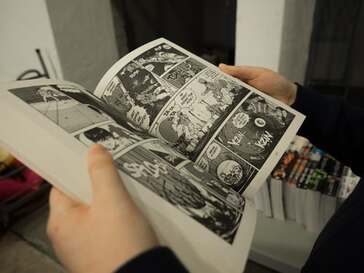|
by Courtney R. Hall
0 Comments
by Ellie Cameron People like to laugh. We laugh at jokes on our phones, we laugh at characters in sitcoms, and we laugh with our friends telling stories to embarrass each other. I think it’s safe to say that the average person picks up some sense of comedic timing simply by consuming comedy.
So why do we feel that we can be funny, just not in writing? Is it lack of confidence? Is it lack of skill? Is it the lasting trauma of high school writing classes? Or is it a matter of context?
 by Christopher M. Comparri The appeal of books, movies, television and any sort of story-telling platform can be boiled down to two key components: having a great story and having great characters to fill out said story. As viewers and readers, we often find ourselves rooting for certain characters and despising others to the pits of our very soul. This can be for any number of reasons: rooting for the underdog, finding a character that is relatable, finding one that embodies the essence of what we feel is right or wrong with the world. Finding the handful of characters that you feel strongly about builds an emotional tie between the content produced and the individual consuming it. However, the trend of incorporating huge casts of characters into stories is now having an adverse effect. People are finding too many characters to like or hate in passing. These characters are being masked as huge markers in a story, but the reality is quite different. In literature, sometimes less is more. |
Archives
July 2024
Categories
All
|
|
Glassworks is a publication of Rowan University's Master of Arts in Writing 260 Victoria Street • Glassboro, New Jersey 08028 [email protected] |
All Content on this Site (c) 2024 Glassworks
|



 RSS Feed
RSS Feed
